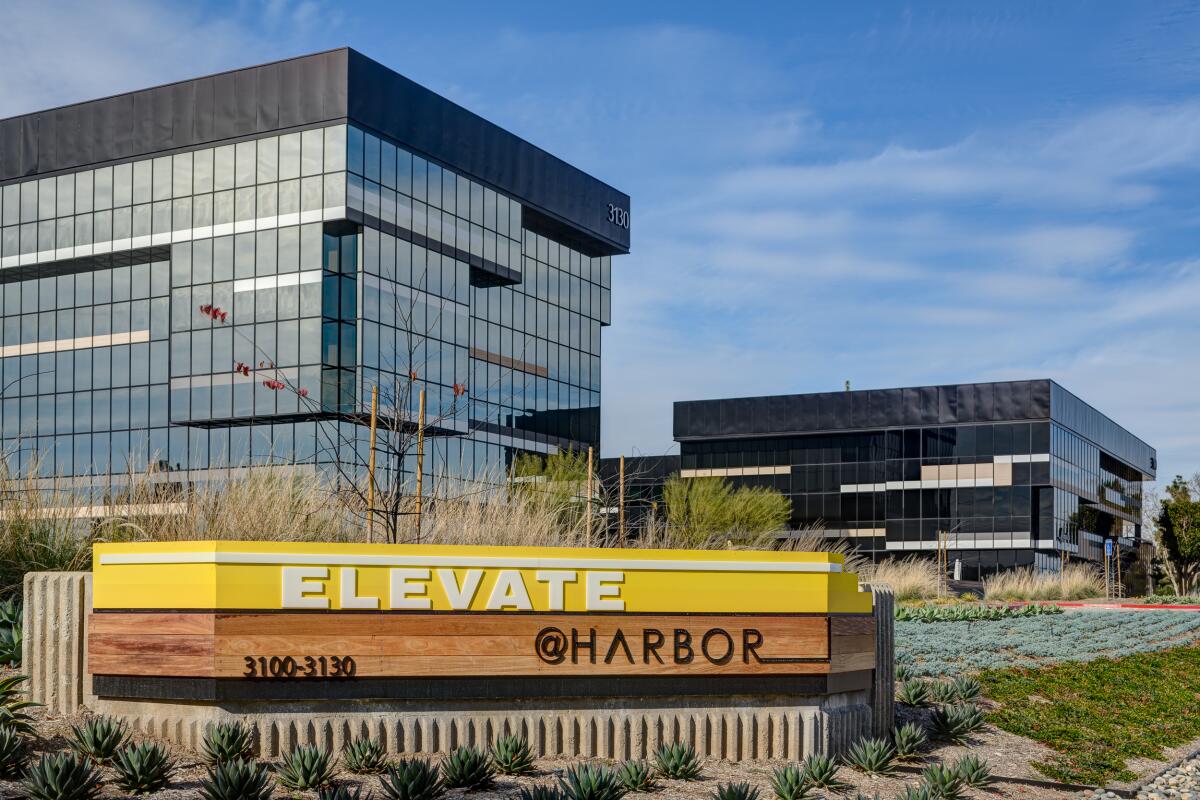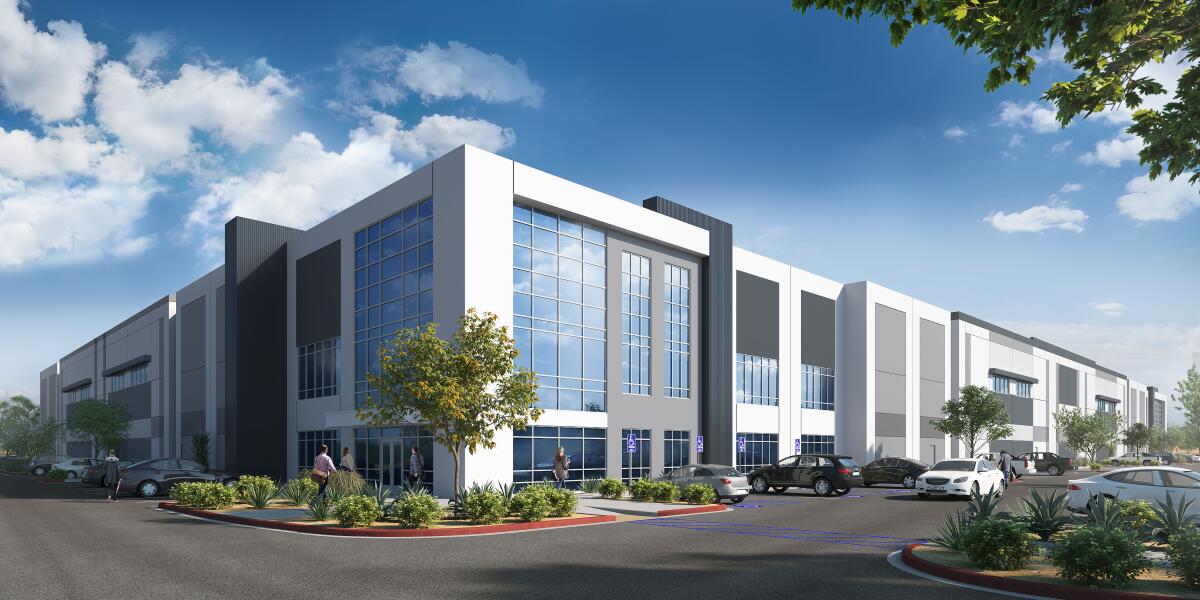In the hierarchy of commercial real estate, office space has long been king.
Developers and landlords lived by the conventional wisdom that there was no better use for your square footage than business offices because they commanded higher rents than industrial spaces.
Simple math, the thinking went.
Well, not so simple anymore. At least in Santa Ana, where a perfectly good office complex is being demolished in a dramatic demonstration of how weak the office rental market has become and how deep the demand for Amazon-style distribution centers runs in Southern California.
The owners of the shiny glass building on Harbor Boulevard close to John Wayne Airport made the counterintuitive calculation that they will be better off owning warehouses than trying to wrangle tenants willing to pony up for conference rooms and corner offices.
“We had to make a strategic shift,” said Dan Broder, who is in charge of the redevelopment by Kearny Real Estate Co., owner of the property formerly known as Elevate @Harbor.

Lagging post-pandemic occupancy rates prompted owners of the office complex formerly known as Elevate @Harbor in Santa Ana to tear it down and build a warehouse.
(Lawrence M. Pierce)
The shift was prompted in large part by the COVID-19 pandemic, which contributed nationwide to shrinking office populations and rising demand for home delivery of all manner of goods. Four years on, overall demand for offices remains well below pre-pandemic levels, raising questions about how many buildings built for white-collar labor still have a viable economic future.
“There are a lot of office owners looking at their properties and wondering if those properties still make sense as offices,” said Michael Soto, Southern California research director for real estate brokerage Savills.
Some have decided they don’t and the result has been a shrinking inventory of offices over the past year in several U.S. markets including Orange County, Savills said in a recent report.
While those in urban centers making the decision to get out of the office game increasingly have looked to convert unloved offices to apartments, in some areas warehouses are hard to come by and, consequently, bring a premium, Soto said.
Orange County is prime territory for such switches, he said, because while it is still suburban in nature, it is densely developed with few empty sites available to build new distribution centers.
“There’s real pressure to redevelop older office buildings,” Soto said.
The incentive to redevelop Kearny’s property was enhanced by its location in an industrial district, which spared the company from having to go through time-consuming and challenging process of getting it rezoned for industrial use.

Demolition is underway of an office complex on Harbor Boulevard in Santa Ana that will be replaced by a distribution center.
(Dania Maxwell/Los Angeles Times)
It was a different world for office landlords in 2018, when Kearny bought the office campus for nearly $35 million. The landlord took over a property that was almost fully leased, Broder said. And even though a large tenant was set to move out, Kearny was unconcerned because there was every reason to expect the vacancy would be an opportunity to sign new tenants at higher rents.
Kearny announced that it would spend about $15 million to upgrade the property into a campus-like setting with landscaped grounds, a fitness center and 24-hour access meant to appeal to tenants in creative fields such as technology. Marketing materials boasted that South Coast Plaza shopping center was nearby.
Then came the pandemic, and by early 2022, with occupancy rates hovering at about 60% and the office rental market losing ground, Kearny started to discuss converting the property to another use, Broder said. He declined to disclose further financial aspects of the project.
Kearny negotiated lease terminations with its tenants and set about to knock down the building that dates to 1982 and replace it with Harbor Logistics Center, a far less sleek 163,000-square-foot warehouse and distribution complex designed by SKH Architect set to be complete by the end of the year.
It’s intended to be a “last-mile” facility, Broder said, for goods arriving from elsewhere to be distributed to the surrounding community.
Last-mile facilities have “dramatically” increased in value in recent years and provide “solid rent growth” for their owners, the commercial real estate trade group NAIOP said, as e-commerce businesses such as Amazon compete to deliver within one day of a customer order or even on the same day it is placed.
Frequently ordered goods can be delivered more quickly from a compact nearby warehouse than from a farther-away sprawling fulfillment center such as those found in the Inland Empire.
Meanwhile, office rentals and onsite attendance by tenants continued to lag in in Southern California in 2023 as companies have tried to balance hybrid work policies with their desire for more employee engagement, real estate services company CBRE said in a recent report.
The value of office buildings has been falling nationwide, with average property values down by at least 25% from a year ago, according to a February report by real estate data provider CommercialEdge.

Rendering of the less sleek 163,000-square-foot warehouse and distribution complex that will replace the office complex.
(SKH Architect)
“The downward trend in office valuation is more pronounced in older and less ideally located buildings,” the report said, perhaps such as the aging campus Kearny is knocking down.
“This is not a one-off,” Soto said of the landlord’s switch from office to industrial use of its property. “Especially in dense suburban markets like Orange County where land is expensive, we are going to see more of this.”
